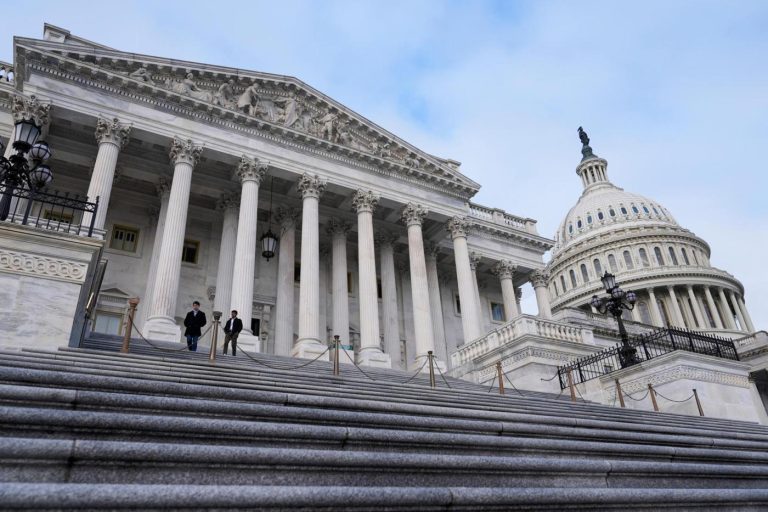ExxonMobil made headlines again this year for its climate suppression, doubling down on lawsuits against two investors for introducing climate shareholder proposals for pollution cuts.
While the resolutions have been withdrawn ahead of the corporation’s annual shareholder meeting in May, Exxon is still pursuing litigation, confirming its insidious intention is more delay and deception.
ExxonMobil is proving that fossil fuel shareholder engagement is not only an exercise in futility — it’s also likely a liability. Big Oil now doesn’t care what its shareholders think, and are looking to grasp onto business as usual at our peril.
Communities around the world, including here in California, are experiencing year-round fires, floods, heat and smoke. Record rains in Los Angeles caused flooding and mudslides, including parts of the iconic coastal highway near Big Sur sliding into the sea. This is exactly why California is suing the likes of Exxon and Chevron for climate damages and deception.
My pension fund, the California Public Employees Retirement System, holds a $1 billion stake in ExxonMobil. As a CalPERS beneficiary, I am dismayed that my pension is not only fueling the climate crisis, but isn’t maximizing returns.
CalPERS has argued that the fund can be more influential through shareholder engagement, but what do they have to show for it? Nothing. Exxon’s suit is just a slap in the face.
At a March board meeting, more than 100 community and labor members denounced Exxon and urged CalPERS to cut its $9.4 billion holdings in the top 200 fossil fuel companies.
After years of digging in its heels, CalPERS now acknowledges that engagement with Big Oil isn’t working — and is considering an exit from Exxon. CalPERS President Theresa Taylor said they need a plan, “and that plan needs to include whether or not we keep those people in our portfolios,” referring to Exxon.
But while CalPERS takes baby steps in the right direction, this incrementalism can’t outrun the fires and floods.
A broad, diverse, intergenerational movement of workers, teachers, students, elders and unions has come together to support Senate Bill 252 — legislation to protect California’s pensions by establishing a timeline to divest from fossil fuels. The bill has more momentum than ever, having already passed the Senate last year. It’s now pending in the Assembly.
Exiting Exxon and adopting SB 252 are integral and interconnected actions to protect frontline communities, California pensions and ultimately our planet. Some fund managers have noted that shareholder pressure is unlikely to produce results when it intends to change a company’s core business, a failure repeated over the last decade with Exxon.
Related Articles
Lawmakers hope to use this emerging climate science to charge oil companies for disasters
California gas prices are spiking again, what’s going on?
Biden administration’s new rule: Oil, gas companies must pay more to drill on public lands
After a long slog, climate change lawsuits will finally put Big Oil on trial
Why are oil and gas companies pumping money into a down-ballot East Bay race for State Senate?
A 2023 study from the University of Waterloo revealed CalPERS and CalSTRS lost nearly $10 billion between 2012 and 2022 by not divesting, continuing the trend of a 2019 Corporate Knights report revealing that CalPERS and CalSTRS would have generated an additional $11.9 billion and $5.5 billion, respectively, by 2019 had they divested a decade earlier. This is the equivalent of $6,072 per CalPERS member and $5,752 per CalSTRS member in 10 years.
As the largest pension fund in the nation and the sixth largest in the world, CalPERS could lead the transition and send a message that exiting fossil fuels is not only fiduciarily responsible, but will help protect the planet for current and future members.
That would make me a very proud CalPERS beneficiary.
Ruth Holton-Hodson is a 35-year consumer and health advocate. Before retirement, she worked in the state Treasurer and Controller offices. She wrote this column for CalMatters.












